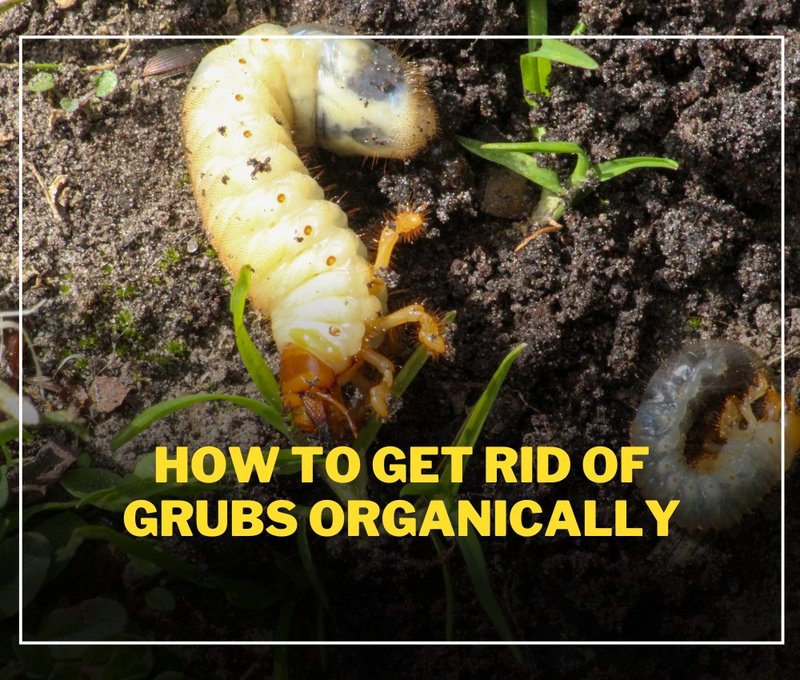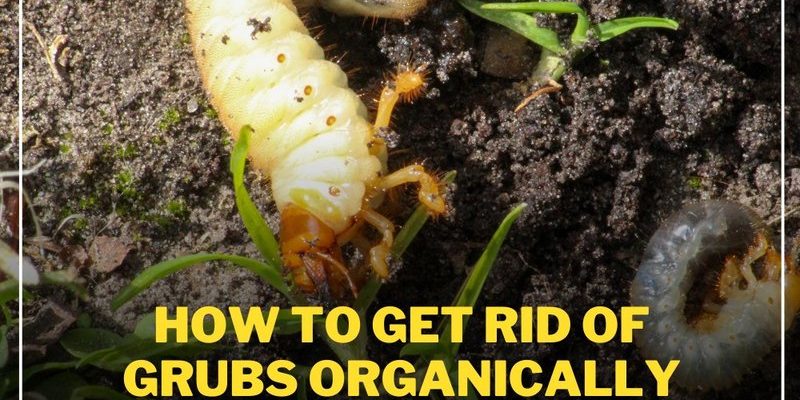
In this article, we’ll explore natural solutions that not only target grub worms but also promote a healthier lawn ecosystem. These methods are like inviting beneficial allies to the lawn party—friendly bugs and natural materials that help keep the grub population in check. Let’s dive into some effective ways to take back your lawn while keeping it safe for family and pets.
Understanding Grub Worms and Their Impact
Grub worms are often the hidden culprits behind lawn damage. These small, white larvae develop underground, feeding on the roots of grass and other plants. As they munch their way through the root system, they weaken the grass, resulting in patches that can turn brown or die off completely. You might be wondering, why are they even in my yard? Grubs come from adult beetles, such as June bugs and Japanese beetles, that lay their eggs in the soil. Once the eggs hatch, the larvae start feeding.
The *best organic methods to control grub worms* focus on prevention and natural deterrents. By understanding their life cycle, you can implement strategies that interrupt their development and diminish their numbers. For instance, if you manage to disrupt the adult beetles’ egg-laying process, you might prevent a new generation of grubs from emerging.
Promote Healthy Soil
A thriving lawn starts with healthy soil. Healthy soil can outsmart pests in a few ways. First, it supports strong grass roots, making it difficult for grubs to do damage. You can improve your soil health by testing its pH and nutrient levels. Often, simply adding organic matter like compost can help.
Here’s how to promote healthy soil:
- Compost: Adding compost enriches the soil and helps retain moisture, giving grass the nutrients it needs to grow strong.
- Aeration: Aerating your lawn allows air, water, and nutrients to penetrate the soil more effectively. This can disturb the grubs’ habitat, making it less inviting.
- Mulching: Using organic mulch around garden beds can enhance soil structure, retain moisture, and even attract beneficial insects that prey on grubs.
By investing in your soil, you’ll create a thriving environment that’s less attractive to grubs.
Introduce Beneficial Nematodes
One of the coolest organic methods to control grub worms involves using beneficial nematodes. These microscopic worms invade and kill grubs while leaving your grass unharmed. Think of them as nature’s little assassins, targeting only the pests you want gone.
Here’s how to use beneficial nematodes:
1. Choose the right nematodes: Different species target different pests, so look for nematodes that specifically attack grubs, like *Heterorhabditis bacteriophora*.
2. Apply them during optimal conditions: For the best results, apply nematodes in moist soil during the evening or early morning when temperatures are cooler.
3. Water them in: After applying, water lightly to help them penetrate the soil and reach their targets.
This method is environmentally friendly and can significantly reduce the grub population without harming other beneficial organisms in your yard.
Use Milky Spore Disease
Milky spore disease is another natural way to tackle grub worms, particularly Japanese beetles. It’s a bacterium that infects and kills grubs, and once established in the soil, it can provide long-lasting control—often for years!
Here’s how to apply milky spore:
– Timing is key: Apply it in the spring or fall when grubs are most active just below the surface.
– Follow the instructions: Make sure to apply the spores evenly and water the area afterward to activate them.
– Be patient: It can take some time to see results, as milky spore needs to establish itself in the soil.
Using milky spore creates a soldier in your soil that keeps fighting off grubs long after you’ve made the application.
Encourage Natural Predators
Creating an environment that attracts natural predators can dramatically help control grub populations. Birds, beneficial insects, and even certain mammals enjoy snacking on grubs. You might be surprised how quickly they can make a difference!
Here’s how to encourage these friendly critters:
– Plant native flowers: Many birds and insects are drawn to native plants, which offer food and shelter.
– Install birdhouses: Providing nesting sites can attract birds that will help control grubs.
– Avoid pesticides: Using chemicals can harm beneficial predators. Keeping your lawn chemical-free encourages a balanced ecosystem.
Incorporating more biodiversity in your yard not only helps with grub control but enhances its beauty and overall health.
Practice Proper Lawn Care
Proper lawn care is a crucial factor in controlling grub worms naturally. A well-maintained lawn stands strong against pests while thriving under the right conditions.
Here are a few tips for effective lawn care:
– Mow at the right height: Keeping your grass at least 3 inches tall can shade the soil and reduce temperatures, making it less favorable for grubs.
– Water wisely: Deep, infrequent watering encourages deeper root growth, making your grass more resilient and less susceptible to grub damage.
– Rotate your grass types: Different grasses have varying resilience to pests. Mixing in resistant varieties may help your lawn better withstand grub attacks.
By following these practices, you create a lawn that not only survives but thrives, helping reduce the likelihood of grub infestations.
Integrate Organic Treatments
Sometimes, despite our best efforts, we need a little extra help. Organic treatments can serve as a supplementary approach to controlling grub worms. These treatments are environmentally friendly and can be used alongside other methods.
Here are a couple of effective organic treatments:
– Neem oil: Derived from the seeds of the neem tree, this oil not only controls pests but also improves plant health. Spray neem oil on infected areas to deter grubs and other pests.
– Diatomaceous earth: This natural powder, made from fossilized algae, can be sprinkled onto the soil. It works by dehydrating and killing grubs on contact.
Using these treatments thoughtfully can give your efforts an added boost toward a grub-free lawn.
Monitor and Adjust Strategies
Finally, monitoring your lawn’s health and adjusting your strategies as needed is essential for ongoing grub control. Regular checks can help you catch any issues before they escalate.
Here’s how to keep tabs on your lawn:
– Inspect regularly: Look for signs of grub activity, such as brown patches or loose grass.
– Adjust your methods: If you notice continued problems, it might be time to change up your approach or add in another organic treatment.
– Keep records: Track what works and what doesn’t in your lawn care routine. This can help you refine your strategies for the future.
By staying proactive, you can keep your lawn healthy and resistant to grub worms in the long run.
In conclusion, using these organic methods to control grub worms not only protects your lawn but also nurtures a more vibrant ecosystem. From promoting healthy soil to encouraging beneficial predators, each step you take helps create a barrier against these pesky pests. Remember, it’s all about balance and keeping your lawn as healthy as possible. With the right strategies, you’ll have a lush, green yard that’s the envy of the neighborhood!

